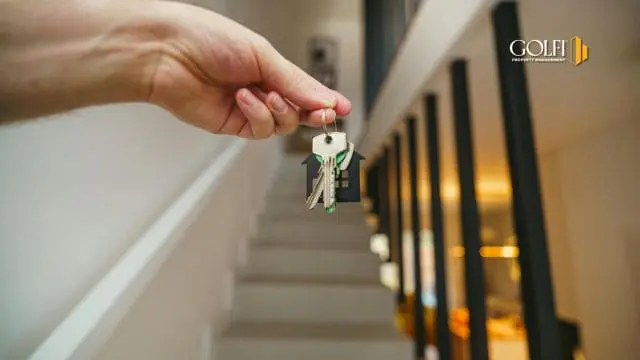First Time Landlord Guide: Tenant Management & Responsibilites
Stepping into the world of rentals for the landlord first time can be both exciting and intimidating.
We’ve been in the trenches here at Golfi Property Management Group, helping first-time landlords like you in Hamilton, Halton, Niagara, and Brantford. And let’s be honest, there’s a lot more to it than just finding a tenant and collecting rent. You need to understand the legal stuff, tenant rights, your obligations, and all the moving parts that come with managing a rental property.
In this guide, we’re breaking it all down. No fluff. No sales pitch. Just straight, accurate information to help you start off right.
We aim to help you understand your obligations so you don’t get caught off guard. Let’s jump in.
Experience hassle-free property management with GOLFI Property Management’s services.
1 Markland St, Hamilton, ON L8P 2J5
Understanding the Role of a First-Time Landlord
Becoming a landlord isn’t just about owning a property and expecting monthly rent. It’s a business, and you’re now the manager of that business.
We’ve seen many first-time landlords jump in without knowing what they’re really signing up for. If you don’t know what your responsibilities are, it can cost you—financially, legally, and emotionally.
Here’s what you’re expected to do:
-
Provide a safe, habitable living environment at all times
-
Respect your tenant’s privacy
-
Maintain the property according to Ontario’s health and safety codes
-
Follow the Ontario Residential Tenancies Act
You’re also taking on customer service, legal compliance, building maintenance, and conflict resolution—yes, all at once. Think of yourself as wearing multiple hats, like a one-person property management company.
And if you’re renting in a city like Hamilton or Niagara, local bylaws and tenant expectations vary. For example, certain properties may require registration or special permits. We’ve seen people ignore this and end up with hefty fines.
Being prepared is what separates smart landlords from struggling ones. That’s why we always recommend starting with the right mindset—this is not passive income. It’s active, intentional work.
Legal Responsibilities You Must Know
If you’re a landlord first time, Ontario law is not optional—it’s mandatory. We’ve worked with countless landlords who didn’t know they had legal duties under the Residential Tenancies Act (RTA) and paid the price for it.
Here’s what the RTA requires from you:
-
Provide a written lease (Ontario Standard Lease form is mandatory)
-
Keep the property in good repair even if the tenant knew about issues before moving in
-
Respect privacy rules—you must give 24-hour written notice before entering the unit
-
Adhere to rent increase guidelines (2025 guideline is 2.5% max unless exempt)
Also, the Landlord and Tenant Board (LTB) is your go-to if disputes arise. But don’t wait until there’s a problem. Knowing how to file an N4 for late rent or an N5 for disturbance can save you time and headaches.
We help landlords navigate these rules daily. If you’re unsure about something, it’s best to ask rather than assume. Fines can be steep, and in some cases, you can’t even evict a tenant legally if the proper process isn’t followed.
Essential Paperwork Before Renting
We always advise first-time landlords to get their paperwork tight before listing the property. You don’t want to wing this part.
Here’s what you must have:
-
Ontario Standard Lease Agreement (mandatory for all residential tenancies)
-
Form N1 or N11 if you’re increasing rent or ending tenancy
-
Pre-authorized debit (PAD) forms if you’re setting up direct rent payments
-
Move-in/Move-out condition checklists
-
Proof of insurance
And don’t forget disclosure requirements. If there’s anything that can impact the livability of the property—like past flooding, mold issues, or shared utilities—you’re legally obligated to let tenants know upfront.
Keep digital and physical copies of every signed document. Store them somewhere safe. We’ve seen new landlords lose thousands just because they couldn’t prove a lease clause.
Screening Tenants the Right Way
Picking the wrong tenant is one of the most expensive mistakes you can make. In our experience, 9 out of 10 landlord issues can be traced back to poor tenant screening.
Here’s what we look for:
-
Credit score of 650+
-
Stable income source (3x monthly rent is a good rule)
-
Previous landlord references
-
No history of evictions or LTB issues
Make sure the application includes:
-
Employer details
-
SIN (optional but useful for credit checks)
-
Personal references
-
Consent to background checks
Use services like Naborly or SingleKey for screening. Trust us—it’s worth the small fee. And remember, this is your investment. You’re not just choosing someone to live there. You’re choosing someone to protect your asset.
Setting the Right Rental Price
Let’s not guess here. Pricing your rental too high will leave it vacant. Too low, and you’re losing profit. In the Hamilton and Niagara regions, prices can swing dramatically by neighbourhood.
Here’s how we calculate the right price:
-
Run a Comparative Market Analysis (CMA)
-
Check active listings on platforms like Rentals.ca and Zumper
-
Use insights from tools on our
We also factor in:
-
Location demand (walkability, schools, transit)
-
Property condition
-
Unit size and upgrades
-
Seasonality (fall is slower, spring is hotter)
Always include utilities in your pricing model—decide early whether you or the tenant pays. It impacts rent range. And document all your price justification in case the LTB ever questions a rent increase.
Creating a Rent Collection Strategy
We see landlords struggle here more than anywhere else. Late payments turn into unpaid rent. Unpaid rent becomes a legal headache. Get ahead of it with a plan.
We suggest:
-
Pre-authorized debit or e-transfer setup on Day 1
-
Clearly written rent due date in the lease
-
Automated reminders (email or SMS)
-
Firm policy for late payments—typically a 5-day grace period max
In Ontario, you can charge late fees, but only if outlined in the lease and within legal limits.
Here’s a simple rule: Make it easy to pay rent, but hard to ignore when it’s late.


